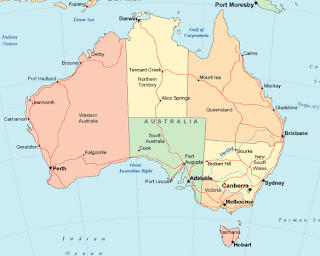The development of nationwide broadband in Australia is set to put the country at number one in broadband in three years’ time and give a major boost to economic growth.
The internet has become an all encompassing phenomenon that touches every facet of our lives. However, with the ever growing dependence on the internet it is not enough to have an internet connection; you need a connection that allows faster access to information. Broadband in Australia is set to make a huge difference to the speed at which you browse for information.
The initial target of National Broadband Network in Australia is to make available a minimum speed of 100Mpbs to 90% of all homes and institutions. 100Mpbs is 100 times faster than the speed that most Australians get through a dialup internet connection. The end goal, however, is to provide 1Gpbs broadband speed in Australia. The remaining 10% of the country’s area will be covered through satellite and wireless technology with a minimum 12Mpbs speed.
Although every country has its own typical needs and compulsions, the sheer vastness of its size makes Project Broadband in Australia a test bed for any country in the world. Nationwide broadband in Australia will allow services to be delivered direct to the consumer from a distance. This is considered to be of special importance to Australia due to its size and its typical geography.
In as far as the commercial aspect of broadband in Australia is concerned it is being likened to the industrial revolution. The industrial revolution reduced the cost of transportation and made it possible for manufacturers to take advantage of economies of scale and manufacture goods at a distance from consumers. Broadband in Australia in expected to make a similar difference to way services are asked for and delivered in future.
Thank you for reading the article about Nationwide Broadband in Australia on the blog NEW TECH If you want to disseminate this article on please list the link as the source, and if this article was helpful please bookmark this page in your web browser by pressing Ctrl + D on your keyboard keys.

